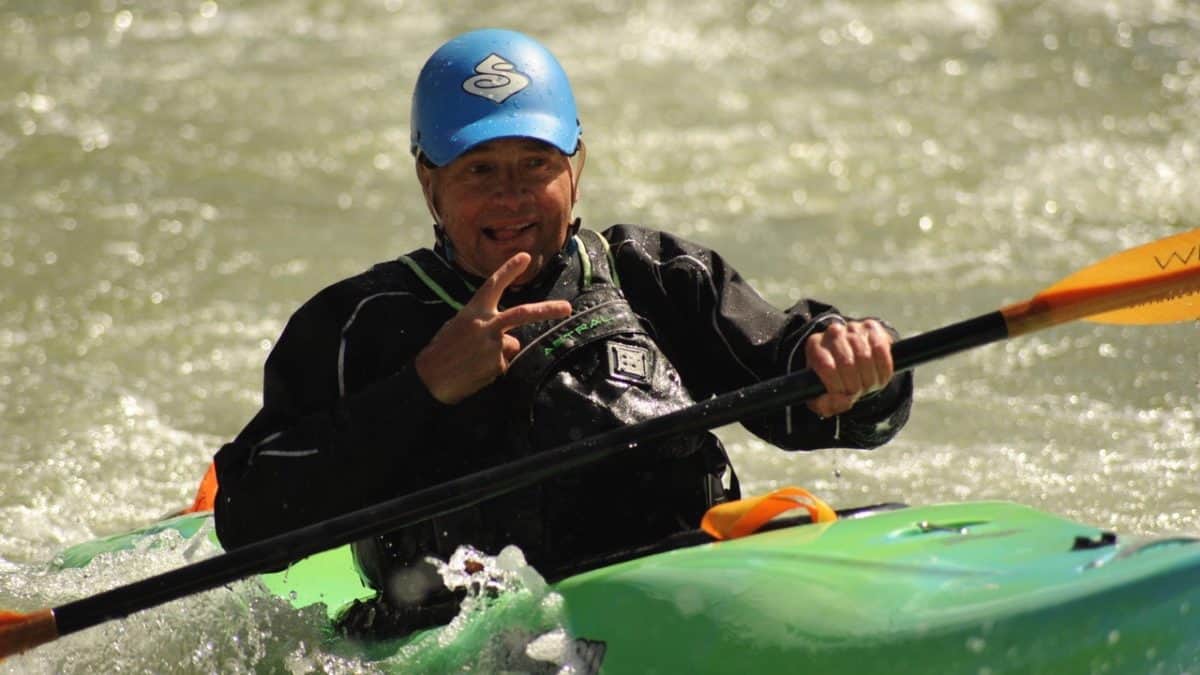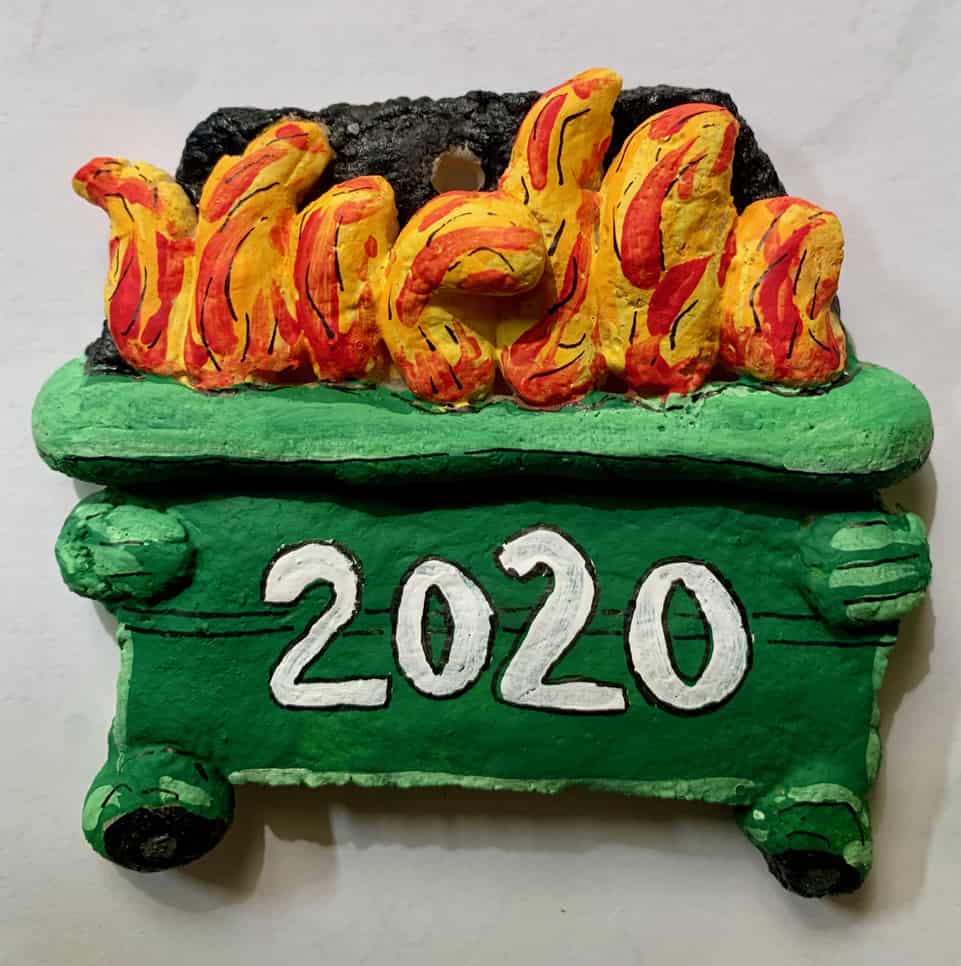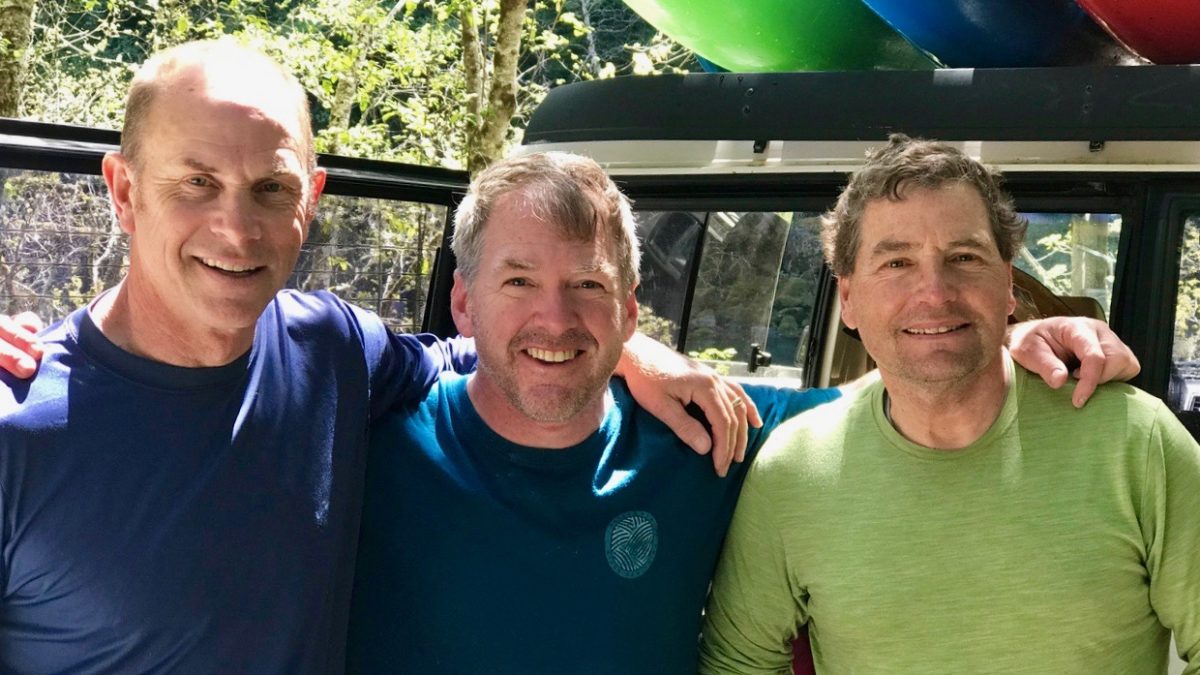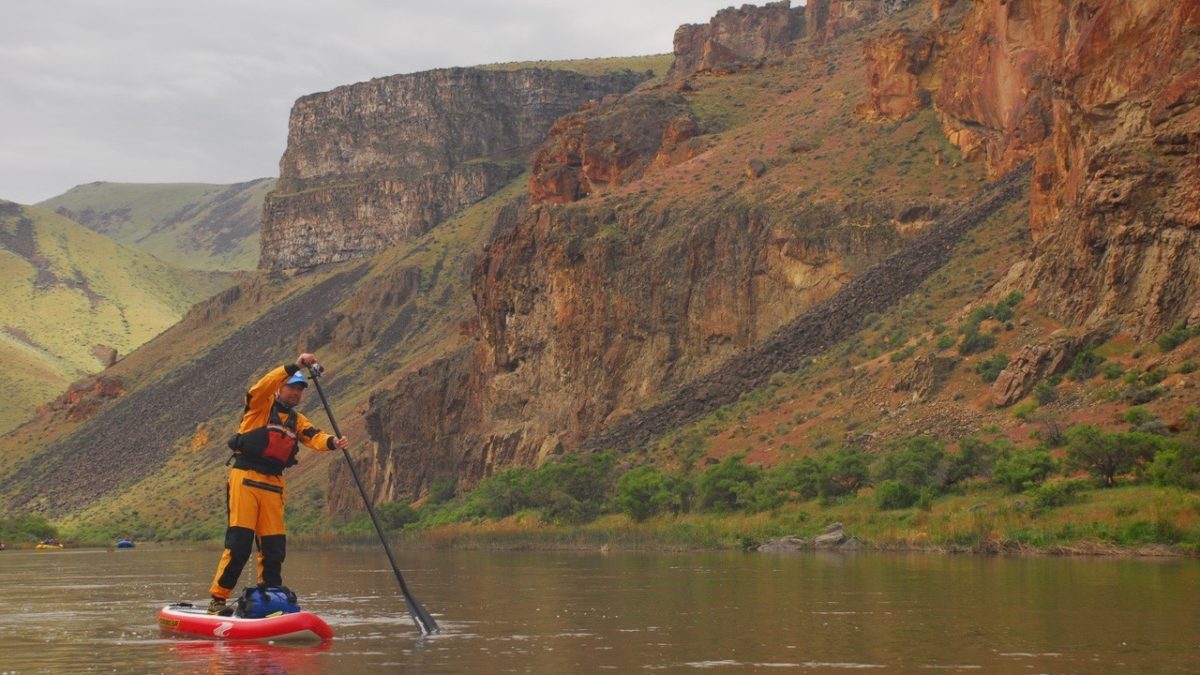Paddle Sports in the COVID-19 Era Pt. 4
This week I spoke with the Executive Director of American Whitewater, Mark Singleton. As we have learned over the past few weeks, getting outside was popular in 2020. Let's see what Mark has to say from the river conservation side of things.
Tell me a little about yourself and your job with American Whitewater? Maybe include a little how you got to your current job.
I’ve been a life-long paddler, as kids we lived in Hawaii where my parents were part of the local YWCA that had a paddling club on the beach. There were a lot of older Hawaiian guys who paddled outrigger canoes, Koa wood dugouts. The old Hawaiian guys would grab young kids that were hanging around and take us out to surf. It’s funny because I still remember very clearly the first time I was surfing waves in a dugout. You could feel the hull pop up on the wave-face and the Koa wood would hum as the dugout planed up on the surface of the wave. I’ve been chasing that sensation ever since.

Mark Singleton In His Element
Later the family moved to the mainland and I started paddling kayak and guiding river trips through college. I ended up moving to western North Carolina to take on the marketing role of a large outfitter here in the east. Through that marketing role the outfitter became an industry partner of American Whitewater (AW) and I started to work with AW staff on joint projects. When AW was looking for a new executive director in 2004 I got recruited by board members at the time. I honestly was not looking for a job as a nonprofit director, the job kind of found me.
Since then I have been extremely lucky to assemble a team of staff that are just amazing folks. We all work well together and it’s a highly talented team with diverse skill sets that includes science, economics, community planning, policy, legal, technology, and communication skills. All of us on staff bring something different to the mix and we share that information openly with one another. One of the hardest parts of managing a nonprofit through Covid has been the lack of face time with staff and board members. Zoom is an effective tool, but it only goes so far. The spontaneous conversations that just popup when you are together don’t happen with Zoom and we all feel a little poorer for that lost spontaneity.
We are coming up on a year of COVID. What did things look right before first round of lock downs started? Did you have a busy 2020 planned out?
Here we are, a year into Covid, and 2020 can go down as the year of the dumpster fire. Many organizations struggled with a remote workforce when the lockdown hit. At AW, staff have been working remotely for 15 years. I ditched the central office concept when I started the job because I need a team that was based regionally to work on the river stewardship project mix we have in place. It helps our grassroots efforts greatly when community members see AW staff picking up their kids from school or shopping in the local grocery store, not to mention paddling local rivers (it beats the model that was in place with siloed staff crisscrossing the country through airports from a central Washington D.C. office). Over the last 15 years we’ve lived the evolution of online tools for greater collaboration, so we had those systems wired.

Soon To Be Classic Holiday Decoration
What is surprising about 2020 is just how successful the year was, we achieved major milestones on our priority campaigns, we also dove headfirst into opportunities leading to Oregon's stunning River Democracy Act which will designate 4,700 miles of rivers across the state as part of the National Wild and Scenic Rivers System. As outdoor recreation boomed during the pandemic, and the world seemed upside down, river conservation proved more popular than ever. Now we are moving legislation forward to designate over 1000 miles of new Wild and Scenic Rivers including Wild Olympics that includes permanent protection more than 126,500 acres of Olympic National Forest as wilderness and 19 rivers and their major tributaries, a total of 464 river miles, a project AW has been working on for over 15 years.
In addition, AW staff played an important role in the historic passage of the Great American Outdoors Act, killed a dam project in the San Joaquin River Gorge in California, and stopped a gold mine at the put-in for the Numbers run on the Arkansas River in Colorado, among hundreds of other success stories for whitewater rivers in 2020.

AW Staff Dave Steindorf, Thomas O'Keefe and Mark Singleton
How did your 2020 season end up panning out? There were lots of virtual events/paddle festivals. How did those work out? Were there any other ways you were able to engage with boaters that was successful? What were a couple challenges you saw/faced?
We host four major river festivals across the country. We had to reimagine those river festivals last year due to Covid and physical distancing. With each of those events we moved them to an online format, having no idea what an online format meant when we announced the change. Have I told you AW has a great staff? Thanks to the creativity of AW staff we were able to produce online events using Zoom that included a mix of entertainment, celebrity hosts, stewardship content, premier movie releases, music, and swag, lots of swag (thank you industry partners).
In a twist of irony that exemplifies 2020, our online events were more successful at generating membership than our face-to-face events. The online format allowed our community to rally around rivers even if they could not be onsite with the event. We saw the same thing happen with our engagement, AW regularly askes members of the paddling community to reach out to their elected representatives to support major legislative initiatives. Activation to our outreach requests increased over 300% last year. It demonstrates the level of engagement that the paddlesports community has when rivers are at stake.
2020 was an incredible year for rivers. American Whitewater worked to secure introduction of the M.H. Dutch Salmon Greater Gila Wild and Scenic Rivers Act that will protect 446 miles of rivers in the Gila River Watershed. In addition, we helped secure House passage of three Wild and Scenic Bills in California totaling 583 miles of river protection. Based on work in 2020 the new River Democracy Act was recently introduced and would protect over 4500 miles of new Wild and Scenic Rivers in Oregon. Through our forest planning work we secured new protections for 75 rivers in Montana and California totaling 614 miles. Despite the pandemic American Whitewater continued to engage river enthusiasts and decision makers to help river conservation be a bipartisan priority of growing importance.

Mark SUPings the Owyhee Photo by Thomas O'Keefe
A global pandemic and a new administration. Lots of changes and new things coming. What are things looking like for AW in the next few years?
In a word, busy! We have a real opportunity in front of us to push forward new land and water protections with the 117th Congress. Keeping track of newly minted legislation can be a challenge to wrap your head around. The upshot is that paddler interests of connecting recreational river users with ecological and science-based data to restore and protect rivers is right in the sweet spot. Below is a quick scorecard of where we stand currently.
Wild and Scenic Designations and Watershed Conservation
- Senators Wyden and Merkley Introduced a Statewide Wild and Scenic Bill for Oregon, the River Democracy Act of 2021 (S. 192), which will designate 4,700 miles of rivers across the state as part of the National Wild and Scenic Rivers System.
- Executive order calling for a review of the boundaries set for Bears Ears and Grand Staircase-Escalante National Monuments that could restore protection on the Colorado and San Juan Rivers.
- Montana Headwaters Legacy Act protects 336 miles on 17 rivers and streams in the Greater Yellowstone and Upper Missouri Headwaters as part of the National Wild and Scenic Rivers System.
- Gila Wild and Scenic, legislation introduced last year that protects 450 miles of the Gila River.
- Wild Olympics, also introduced last year protecting 19 rivers and their tributaries constituting 464 miles of river on the Olympic Peninsula.
Protecting Rivers
- Restore the central role of the states in protecting rivers under Section 401 of the Clean Water Act that protects rivers from harmful impacts from hydropower dams through advocating for measures that protect aquatic habitat and recreation opportunities including scheduled whitewater boating releases.
- Restore the National Environmental Policy Act’s (NEPA) bedrock principles of government transparency, accountability, public involvement, and science-based decision-making. The NEPA review process is a critical law that must be applied broadly to federal management decisions.
These and other actions set us up for a highly productive next few years of advocacy protecting what we love - whitewater rivers!
Thank you so much Mark, and the entire staff at AW, for all of your continued hard work in protecting, promoting, and enjoying the outdoors. You all have made a huge impact on how, when, and where people can recreate on our rivers. See you on the river soon! Thanks!




